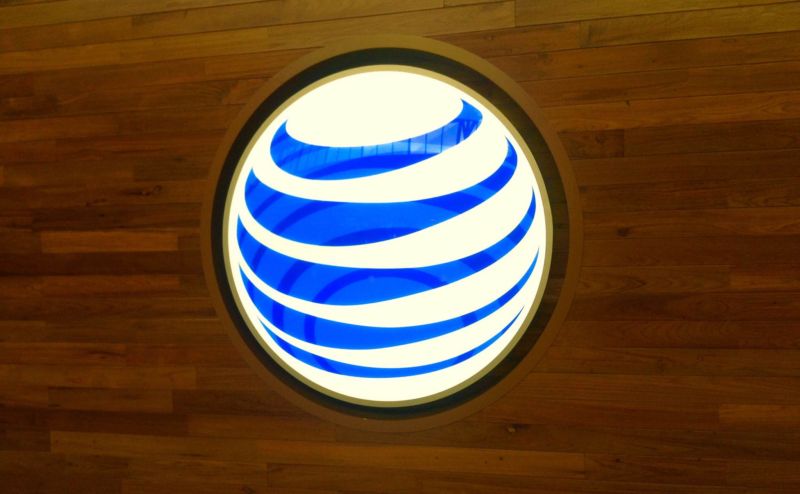
AT&T's court defense of its merger with Time Warner Inc. suffered a blow today, as a judge ruled against AT&T's attempt to find evidence that President Trump meddled in the government's merger review.
AT&T claims that its merger is being singled out by the Department of Justice because of Trump's hatred of CNN, which is owned by Time Warner. This "selective enforcement" defense would require AT&T to show that the DOJ hasn't tried to block similar mergers and is selectively enforcing antitrust laws.
AT&T thus asked the DOJ to produce logs related to conversations with the White House and logs related to internal communications about the White House's views on the merger.
No evidence of discrimination
But AT&T isn't entitled to those records because it hasn't provided any evidence suggesting that the DOJ's prosecution of the merger had "discriminatory effect and discriminatory intent," US District Judge Richard Leon wrote in his order denying AT&T's request today.
"Defendants have fallen far short of establishing that this enforcement action was selective—that is, that there 'exist persons similarly situated who have not been prosecuted,'" Leon wrote.
To be "similarly situated," the circumstances would have to "present no distinguishable legitimate prosecutorial factors that might justify making different prosecutorial decisions with respect to them."
But it is "difficult to even conceptualize how a selective enforcement claim applies in the antitrust context," where each merger has to be viewed in the context of its industry and in light of a variety of factors relevant to whether the merger would lessen competition, Leon wrote.
The DOJ previously gave AT&T "a list of 'all written communications between the White House and the Antitrust Division that relate to the subject of th[e] merger,'" Leon noted. That log contained no evidence of "'untoward' communications between the White House and the Antitrust Division," he wrote.
AT&T followed that request up by asking for additional logs, but the DOJ refused, leading to the conflict that was resolved in today's order. Leon denied AT&T's motion to obtain logs related to the company's selective enforcement defense and granted the DOJ's motion to strike AT&T's outstanding requests for logs listing the following information:
- "All written communications about the merger between the White House and the Attorney General's office."
- "All written communications about the White House's view of the merger between the Attorney General's office and the Antitrust Division."
- "All oral communications between the White House and the Antitrust Division with regard to the AT&T merger."
A trial is scheduled to begin March 19 in the US District Court for the District of Columbia.
When he was campaigning for president, Trump said that his administration would not approve the AT&T/Time Warner merger "because it's too much concentration of power in the hands of too few." But without evidence showing that Trump actually interfered in the merger review, AT&T will have a more difficult time arguing that the DOJ's lawsuit against its merger was politically motivated.
"We respect the judge's decision and look forward to the upcoming trial," Dan Petrocelli, lead trial lawyer for AT&T and Time Warner, said in a statement that AT&T provided to Ars.
The DOJ alleges that a combined AT&T and Time Warner would attempt to impede competition from online video distributors and raise prices on rivals that want access to Time Warner programming.
No similar cases
AT&T's motion failed largely because it wasn't able to provide examples of other companies being treated differently in similar merger reviews.
"[D]efendants have mustered only one specific transaction—Comcast's 2011 acquisition of NBC Universal—as the requisite comparator for their selective enforcement claim," Leon wrote.
But even in that case, the DOJ did file a court complaint against the merger, just as it did with AT&T's proposed purchase of Time Warner, Leon wrote.
"And although the Comcast-NBCU suit was resolved through a settlement, that settlement occurred in the context of 'distinguishable legitimate prosecutorial factors'—including FCC oversight—not present here," he wrote. "Defendants' attempt to use the Comcast-NBCU transaction as the basis for their selective enforcement claim is therefore unavailing."
AT&T also failed to prove its claim that the government is treating this transaction differently from other "vertical" mergers, Leon wrote.
"As counsel for the Government explained at length during the hearing, history belies the notion that this action is the first and only time that the Government has found an antitrust problem with a proposed vertical merger or insisted on a structural remedy as a condition to settlement," the judge wrote.
A vertical merger joins companies that operate at different levels of an industry's supply chain. In this case, AT&T is an Internet access and TV provider, while Time Warner produces video programming that is distributed over Internet and TV services sold by AT&T and its competitors.
reader comments
39